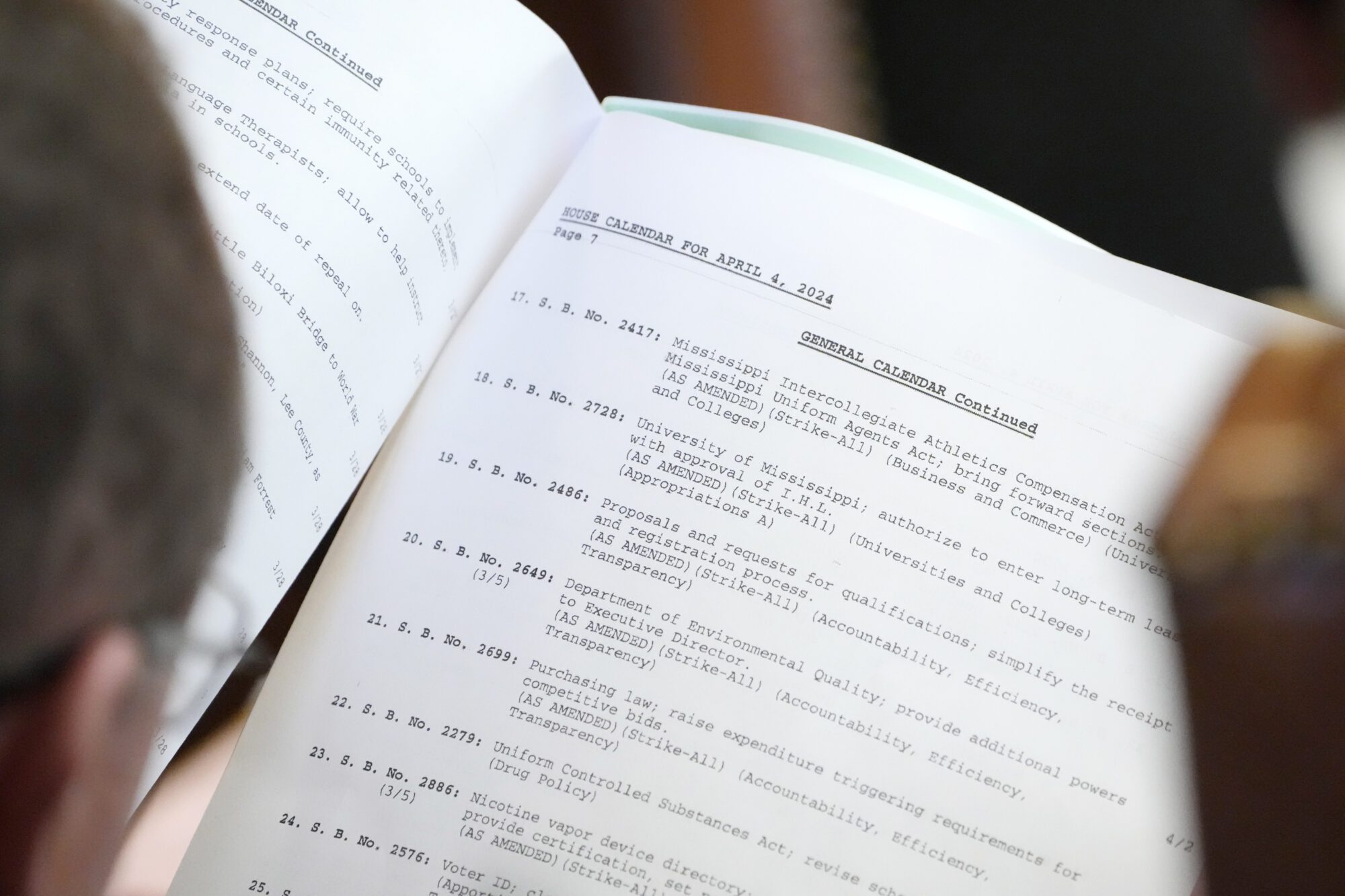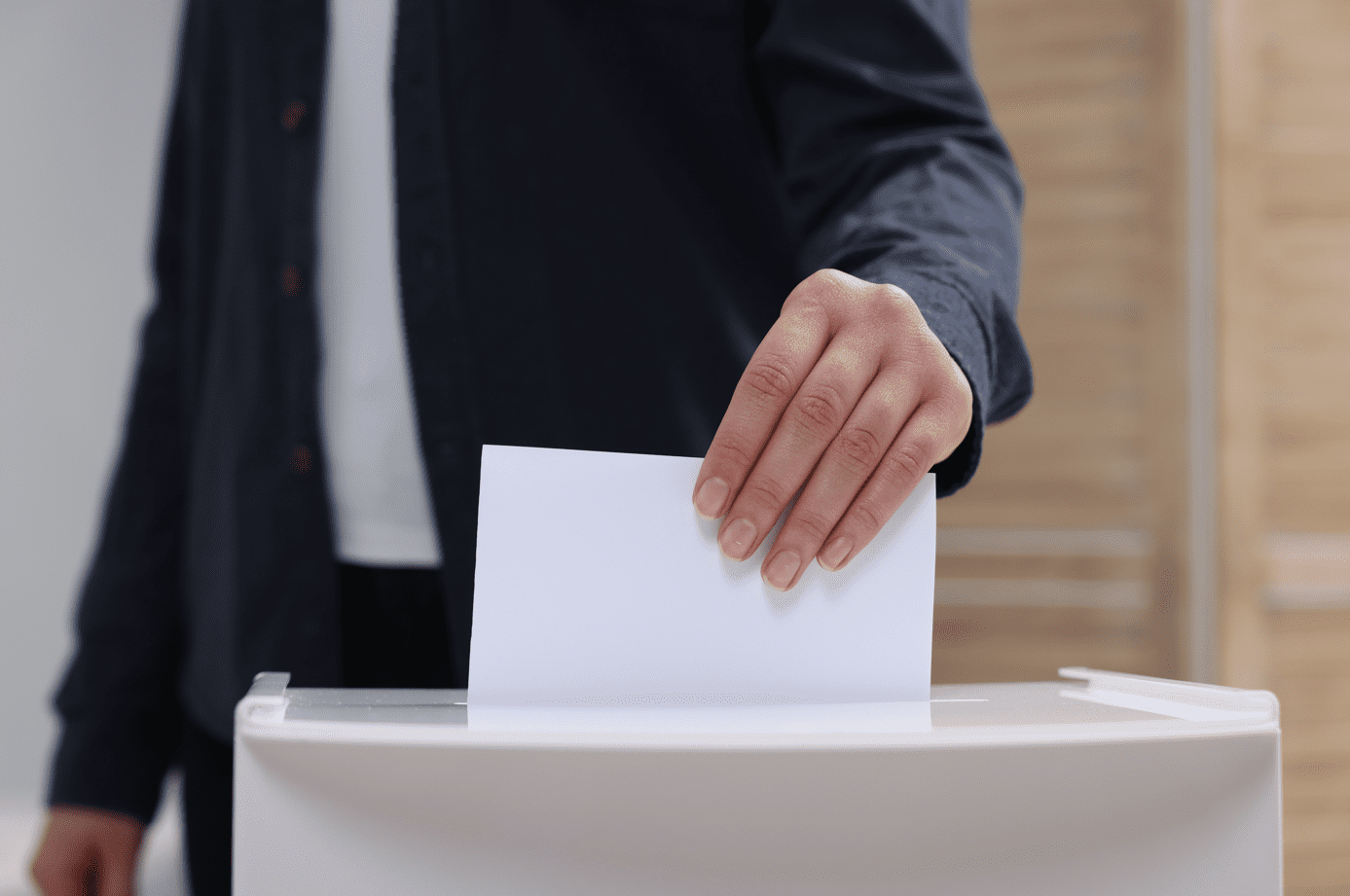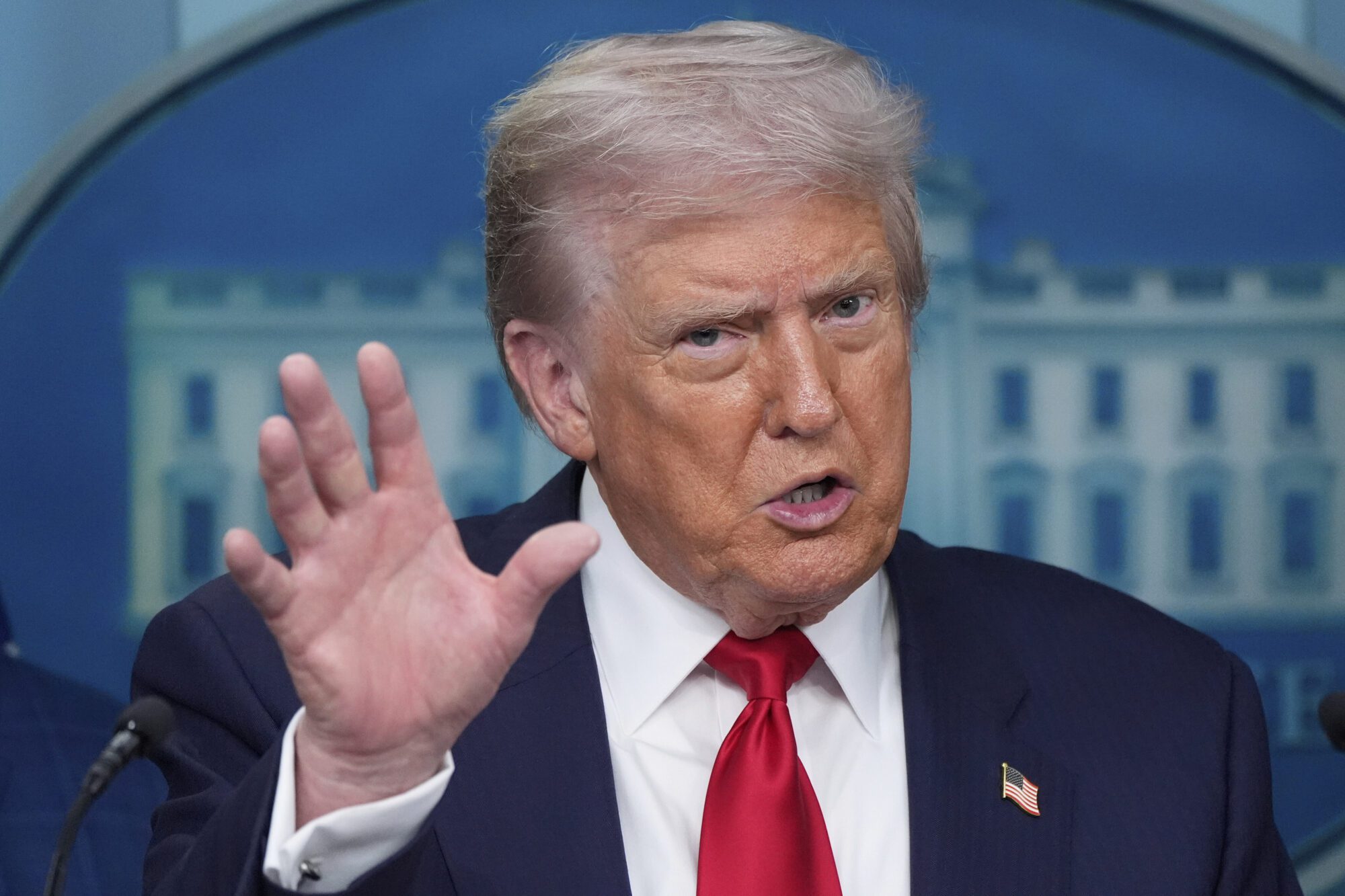
A member of the Mississippi State House of Representatives reads through the day's calendar of bills requiring action in the House chamber, Thursday, April 4, 2024, at the state Capitol in Jackson, Miss. (AP Photo/Rogelio V. Solis)
- March saw state revenue collections outpace estimates by $21.8 million or 4%.
The Legislative Budget Office released March’s revenue report on Wednesday showing that total tax and revenue collections in Mississippi for the month were $21.8 million or 4.14 percent above legislative estimates.
This brings the current fiscal year-to-date revenue collections to $8.5 million or 0.16 percent above estimates with three months remaining in the fiscal year.
The FY 2025 Sine Die Revenue Estimate was $7.6 billion.
According to the March report, general fund collections were down $53 million over the prior year, with sales tax, individual income tax and corporate income tax collections all coming in below the same month in the prior year. In total, revenue collections through March were down $71.7 million from the prior year.
The updated revenue numbers come as lawmakers appear set to leave the Capitol without adopting a new state budget during the regular session. Mississippi’s fiscal year runs from July 1 to June 30.
Speaker Jason White (R) and Lt. Governor Delbert Hosemann (R) are reportedly negotiating a possible suspension of the rules to allow the chambers to take up and adopt the appropriations bills that died on Saturday after the House chose not to participate in the annual conference weekend.
READ MORE: Bulk of spending bills die. What’s next?
If the House and Senate cannot reach an agreement on the rules suspension and gain the needed two-thirds vote, Governor Tate Reeves (R) would likely to be forced to call a special session for lawmakers to finalize the dozens of spending bills that make up the projected $7.7 billion state budget.
Reeves has used his constitutional authority to call a special session sparingly, as it costs the state upwards of $100,000 per day. However, given the lack of movement on various issues this session, the Governor could call lawmakers back to the Capitol to address appropriations bills as well as set an agenda to include other measures, such as education freedom reforms.











